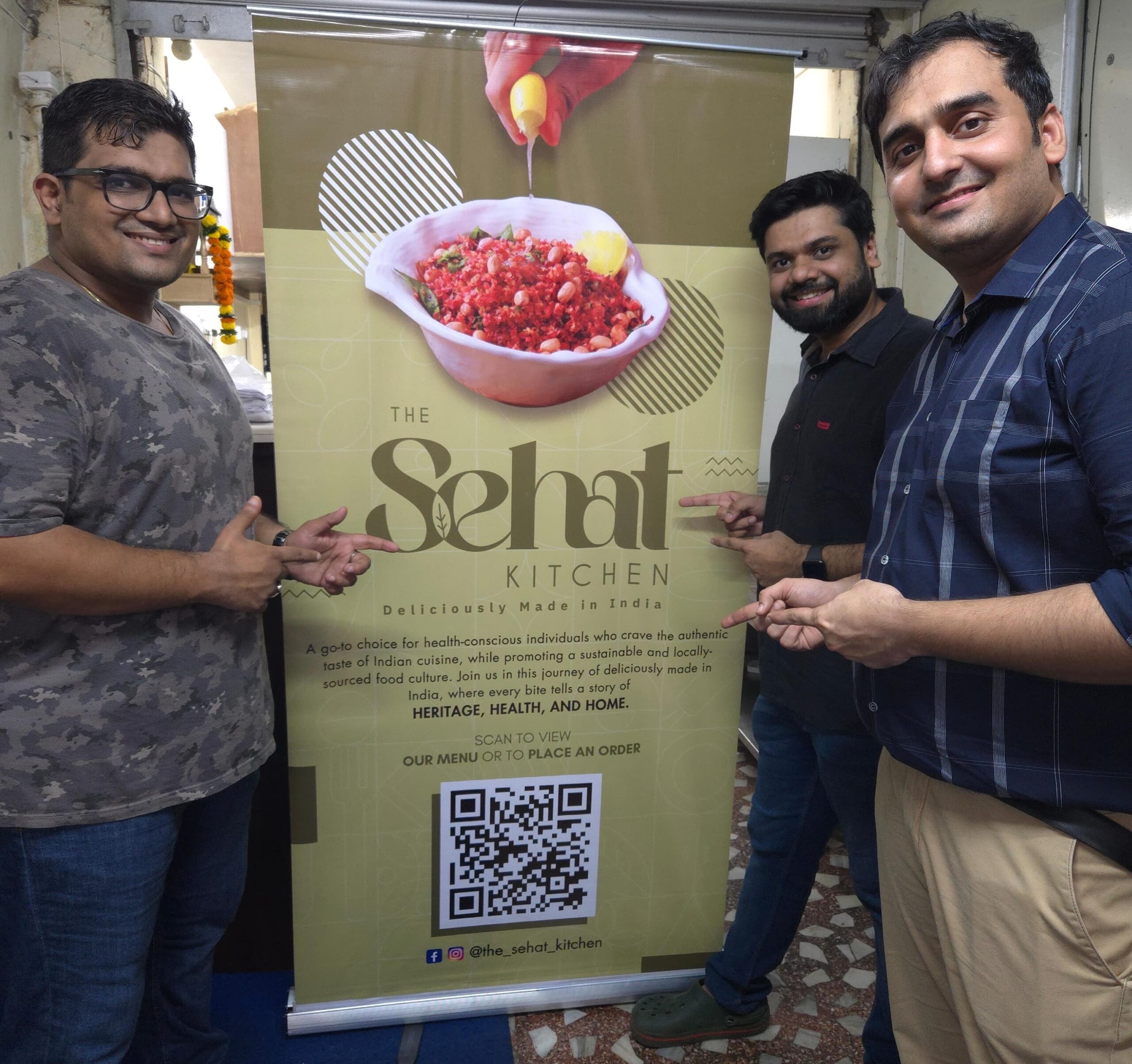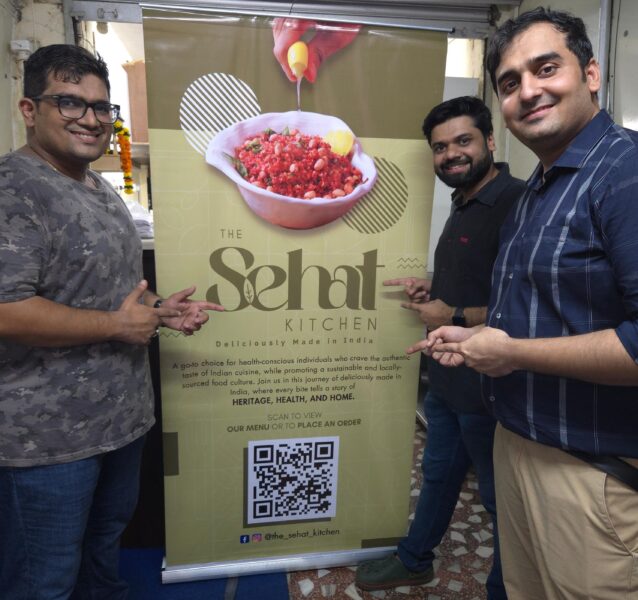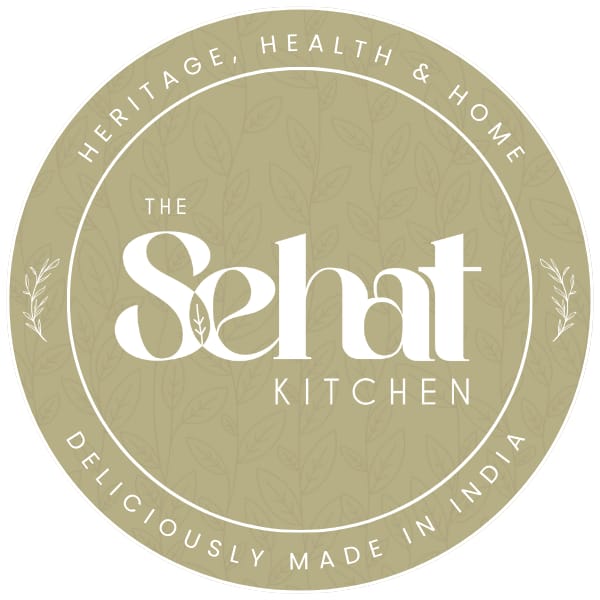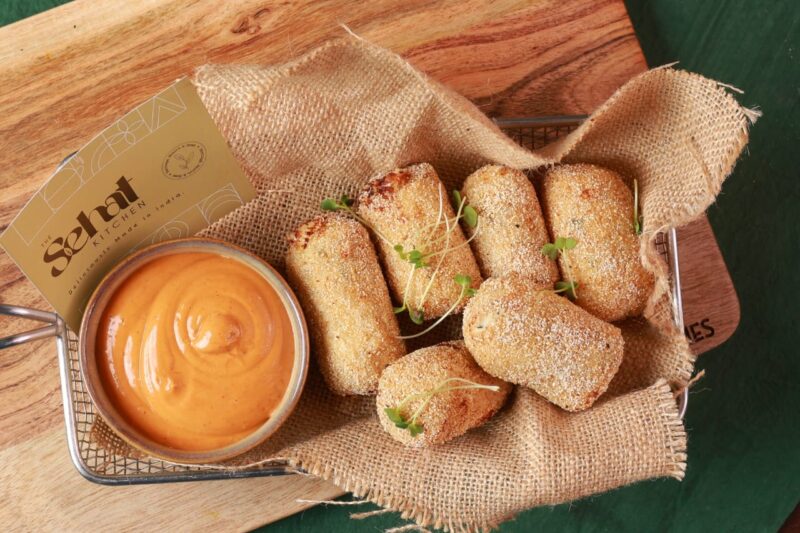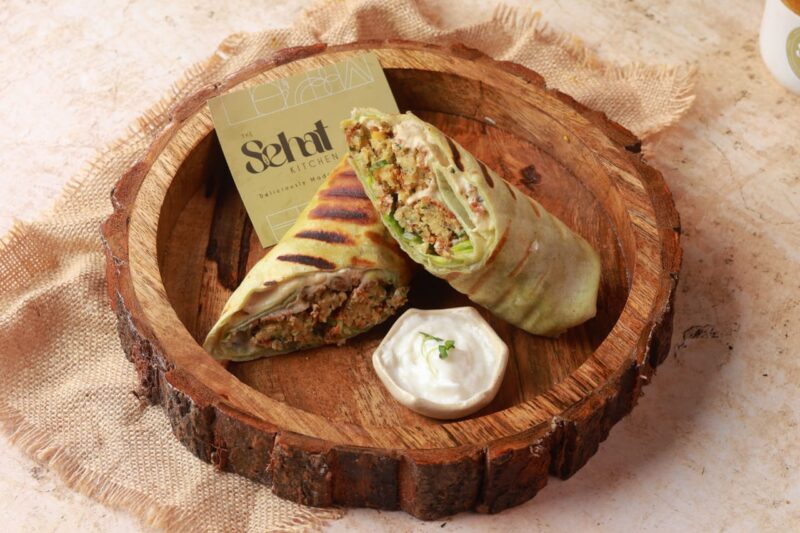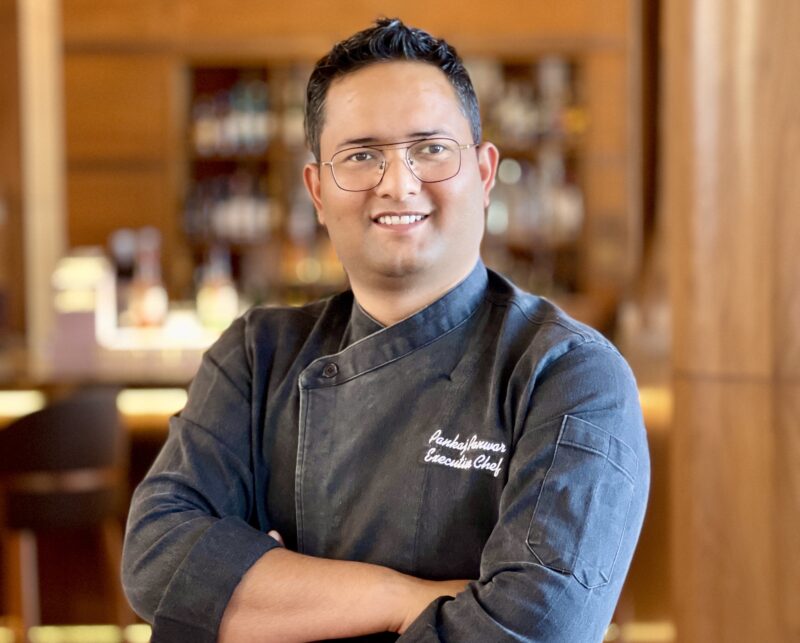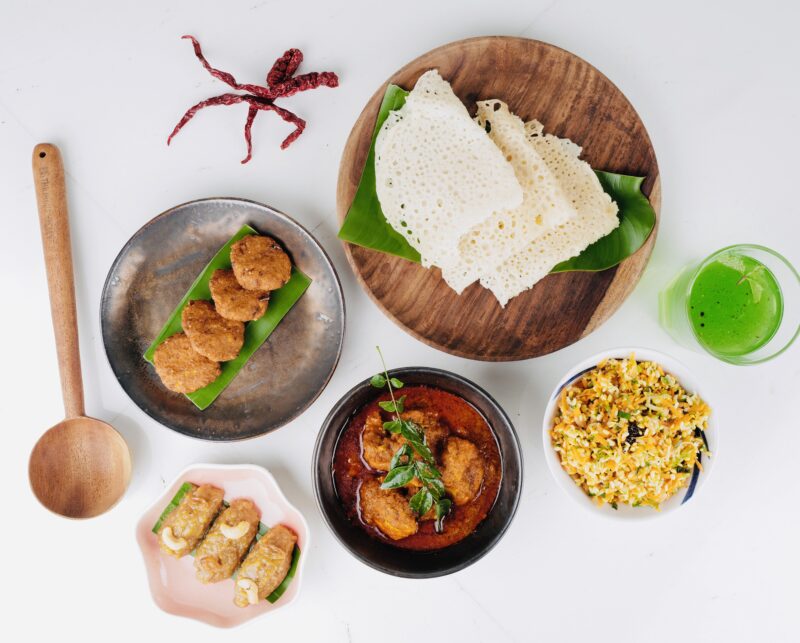The Sehat Kitchen was born out of a wake-up call. As three friends with a shared love for food, we were confronted with alarming blood test results—high triglycerides and cholesterol levels. It was a moment of reckoning that made us rethink our lifestyle and dietary choices.
Rather than seeing it as a setback, we saw an opportunity. We realized many others faced the same health challenges and decided to take action. After extensive research, we rediscovered millets—an ancient, nutrient-rich grain. Millets offered the perfect blend of health benefits and culinary versatility, deeply rooted in our heritage.
With that, The Sehat Kitchen came to life. Our mission is to create meals that nourish the body without compromising on taste. We’re not just serving food; we’re sharing our journey from health concerns to healthier choices. Welcome to The Sehat Kitchen, where heritage, health, and home come together on every plate.
Finding high-quality, organic millets consistently was difficult. We built strong relationships with national suppliers, ensuring a steady supply while supporting sustainable agriculture. We experimented extensively, drawing from traditional recipes and consulting with nutritionists to craft a balanced, flavourful menu.
Introducing people to a millet-based kitchen was challenging, as many were unfamiliar with millets. We educated customers through tastings, demos, and sharing health benefits, using social media and word of mouth to build a loyal following.
Millet and Paneer Pops
Dili ke Chole and Millet Kulche
Quinoa Falafel Wrap
Millet Khichdi
Millet Roti
They are signature because we have removed gluten from the product and made it healthy with millets, without compromising on the taste and quality.
The future of millet
As more people become health-conscious, there’s a rising interest in millets due to their nutritional benefits, such as being rich in fiber, protein, and essential minerals. They are often seen as a healthier alternative to refined grains. In regions where millets were once staple foods, there’s a renewed appreciation for them. People are reconnecting with traditional foods and practices, seeing millets as part of their heritage.
With growing concerns about environmental sustainability, millets are gaining attention for being drought-resistant and requiring fewer resources to grow compared to other grains, making them an eco-friendly choice.
In some areas, government programs and NGOs are actively promoting millets as part of efforts to improve public health and support sustainable agriculture, which has increased public awareness.
Despite these positive trends, millets still face challenges in becoming mainstream. Many people are unfamiliar with how to cook or incorporate them into their diets, and they may still be perceived as “poor man’s food” in some cultures. The media, including food bloggers and influencers, are playing a significant role in spreading awareness about millets, showcasing their versatility and benefits, which is helping to shift perceptions. Overall, while awareness is on the rise, there’s still work to be done in making millets a regular part of people’s diets.
To popularize superfoods like millets and support sustainable food ventures, authorities can take the following steps:
Launch campaigns and workshops to educate the public on the health benefits and culinary uses of superfoods.
Provide subsidies, training, and resources to farmers for cultivating superfoods and adopting sustainable practices.
Improve infrastructure and market access to ensure a smooth supply chain from farm to consumer.
Integrate superfoods into school meals, public institutions, and food security programs to increase familiarity and demand.
Invest in R&D for resilient millet varieties and value-added products, and collaborate with universities for further study.
Implement clear labeling, offer tax incentives, and support businesses that promote superfoods.
Encourage collaboration between government, private companies, and NGOs to scale and innovate in this space.
Promote superfoods in global markets and collaborate with international organizations to highlight their benefits.
These steps can boost the popularity of superfoods, improve public health, and support environmental sustainability.
The future of the cafe
Menu Expansion: Introduce new millet-based dishes and seasonal specials to cater to diverse tastes.
Growth: Expand to new locations, explore franchising, and partner with health and fitness centers for wider reach.
Product Line: Develop packaged foods and millet-based cooking ingredients for retail and online sales.
Sustainability: Shift to eco-friendly packaging and reduce food waste through donations and composting.
Community Engagement: Host workshops, cooking classes, and educational outreach to promote healthy eating.
Technology: Launch a mobile app for easy ordering and personalized meal plans, and use data for customer insights.
Global Outreach: Explore international markets and participate in global food and wellness events.
These steps aim to grow The Sehat Kitchen while maintaining its commitment to health, heritage, and sustainability.
ABOUT THE AUTHOR
Priya Padave is a chef, soft skills trainer and hospitality professional.


